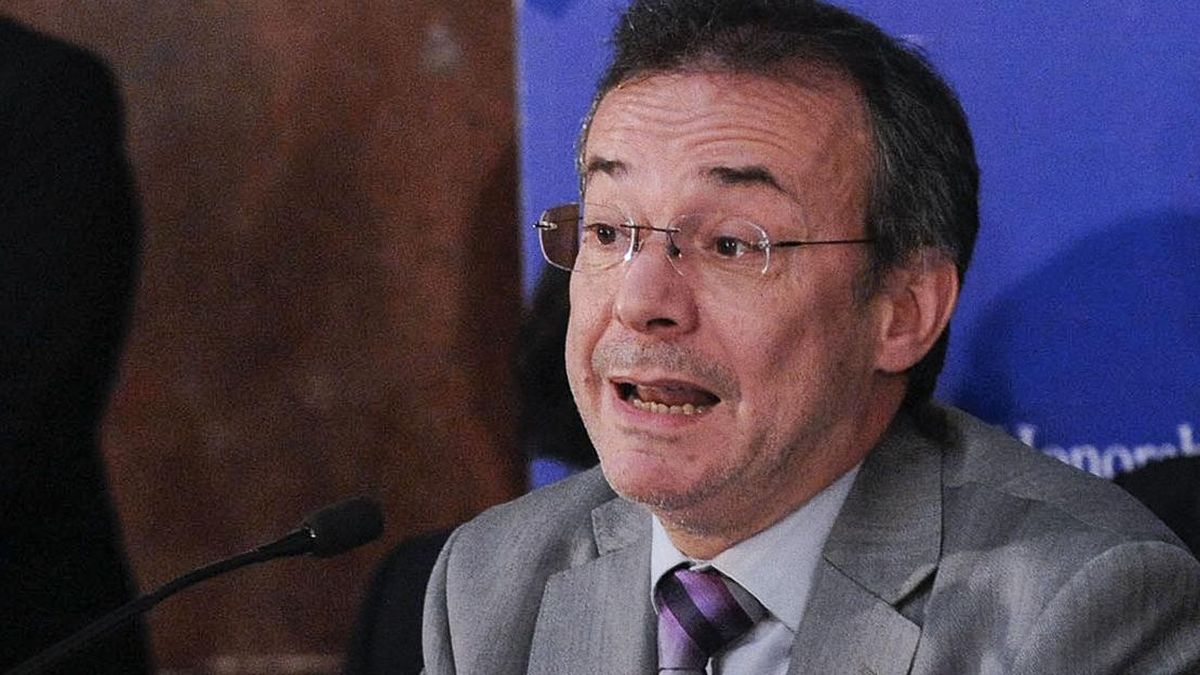Daniel Artan: Here there was, in addition to the economic problems, a crisis in the government coalition. So the first question is whether now that Kulfas and Guzmán have been removed, this fixes the political situation or not. It is not clear. One of the problems that we have in a particularly difficult context in the economy is that on top of that we had the government with very important divisions. The political problem was resolved or not. I can’t answer that question but I get the impression not yet.
Q.: Does the economy have to be subordinated to politics in this context?
GIVES: This statement that the economy has to be subordinated to politics has some truth, but there are certain economic laws that, like the law of gravity, cannot be subordinated to politics. That brings me to another question. Was Guzmán fired for being a spender or a little spender?
Q.: What is your opinion about it?
GIVES: Actually, you see there was a breach of fiscal targets without creative accounting in the first quarter; non-compliance in the second, but they modified them so that they did not have a non-compliance; The reserve goals were not met and they were also modified and the Central Bank is buying bonds with monetary issue. All of that is super expansive. The inflation of the first half of the year is a consequence of the silver plan of the second half of last year, and it is the silver plan that both the president and the previous economy minister tolerated. They took him out for being a spender or because he spent little.
Q: Guzmán left for spending little?
GIVES. I see the proposal for another pension moratorium approved by the Senate obviously with the support of the Kirchnerist bloc, I see the proposal for universal income and it seems that they removed it for spending little. But the turbulence that is seen is the consequence of a state that does not have financing for the current deficit, much less for a higher deficit, and where tension is being reached in the debt in pesos that leads the BCRA to buy with issuance .
Q: Do you think the government takes fiscal constraints into account?
GIVES: One is in a situation where it seems that they are not realizing the restrictions that they have. if they did damage control it would be something else. They end up making economic policies that generate more inflation. That’s because they have a misdiagnosis about what causes inflation.
Q.: Can the Government recover the agreement with the IMF when it appears as breached?
GIVES: The annual goal was not modified, which requires a very important reduction in spending at the end of the year. But I think that beyond wanting to recover, the government has to make a gesture that it has to control the fiscal situation and that gesture has to be to exceed the goal. Do not aim for a relaxed goal. What happens is that this goes against the idea of a part of the government.
Q.: How do you see that context impacting on the level of activity?
GIVES: At some point this will impact the activity. If one puts so many restrictions, at some point the bill is passed, especially when you begin to see a reduction in export prices, which are still very good but are less good than before. It looks complex. The government has an optimistic view with a modest growth end to end of the year. The private sector has a view that there will be growth due to the drag of last year. The data for the first four months of the year, apart from the fact that it has gone up and down, in April corrected for seasonality you are at the same level as in December. In other words, the economy is stagnant. But that was before these turbulence. Turbulence began in the peso market between May and June, and restrictions on imports were tightened at the end of June. One then sees a second semester that looks more complicated.
Q.: Can confidence be regained with gestures towards the market?
GIVES: It’s hard to say that. Here the government has to have a program in which it is clear that it understands what the restrictions are. It’s a basic thing. The central banks of developed countries have bought debt with issuance, but it has its back. Here he is buying debt issued with the bankrupt central bank. He has a negative equity of billions of dollars. It necessarily has to attack the fiscal problem, lower the deficit, if that is not available, the risk that the government has is that the demand for money continues to fall and that takes inflation one or two more steps. Not now. It hits late, but it hits.
Q.: Was there an overshooting with the dollar after Guzmán’s resignation?
GIVES: Whenever there is turbulence, there is some overshooting. but then it depends on what they do. In the short term they can iron it a little. Regardless of the discussion that we can make, to try to reduce the volatility and the anxiety that is generated for all people, consumers, businessmen, merchants and industrialists, which generates enormous noise and in the standard of living of the people, they have to be clear about the origin of the problem and I think that this government, since it began, has not been clear about the origin of the problem
Source: Ambito
David William is a talented author who has made a name for himself in the world of writing. He is a professional author who writes on a wide range of topics, from general interest to opinion news. David is currently working as a writer at 24 hours worlds where he brings his unique perspective and in-depth research to his articles, making them both informative and engaging.




